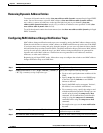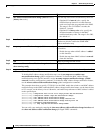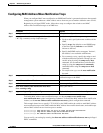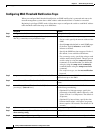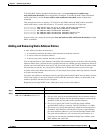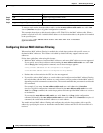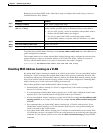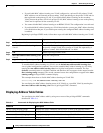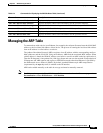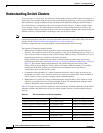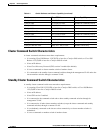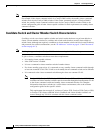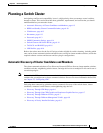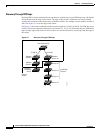
5-31
Catalyst 2960 and 2960-S Switch Software Configuration Guide
OL-8603-09
Chapter 5 Administering the Switch
Managing the ARP Table
Managing the ARP Table
To communicate with a device (over Ethernet, for example), the software first must learn the 48-bit MAC
address or the local data link address of that device. The process of learning the local data link address
from an IP address is called address resolution.
The Address Resolution Protocol (ARP) associates a host IP address with the corresponding media or
MAC addresses and the VLAN ID. Using an IP address, ARP finds the associated MAC address. When
a MAC address is found, the IP-MAC address association is stored in an ARP cache for rapid retrieval.
Then the IP datagram is encapsulated in a link-layer frame and sent over the network. Encapsulation of
IP datagrams and ARP requests and replies on IEEE 802 networks other than Ethernet is specified by
the Subnetwork Access Protocol (SNAP). By default, standard Ethernet-style ARP encapsulation
(represented by the arpa keyword) is enabled on the IP interface.
ARP entries added manually to the table do not age and must be manually removed.
Note For CLI procedures, see the Cisco IOS Release 12.2 documentation from the Cisco.com page under
Documentation > Cisco IOS Software > 12.2 Mainline.
show mac address-table dynamic Displays only dynamic MAC address table entries.
show mac address-table interface Displays the MAC address table information for the specified interface.
show mac address-table learning Displays MAC address learning status of all VLANs or the specified VLAN.
show mac address-table notification Displays the MAC notification parameters and history table.
show mac address-table static Displays only static MAC address table entries.
show mac address-table vlan Displays the MAC address table information for the specified VLAN.
Table 5-4 Commands for Displaying the MAC Address Table (continued)
Command Description



